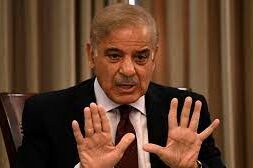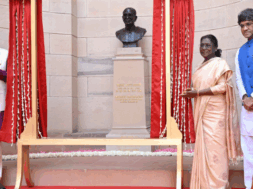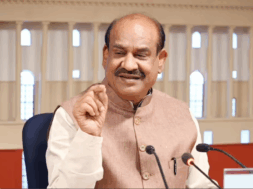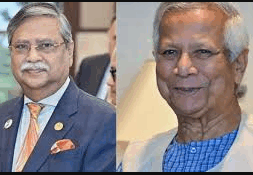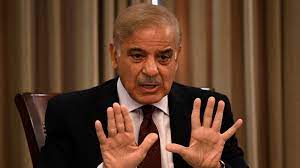
Sharif Reciprocates Modi for “Peaceful and Cooperative Ties” but Only After Resolving Kashmir Issue
NEW DELHI, April 12: Pakistan’s newly-appointed pirme minister Shehbaz Sharif on Tuesday thanked his Indian counterpart Narendra Modi for felicitating him and said his country desired “peaceful and cooperative” ties with India.
He, however, reiterated what he had said in his inaugural address to Pakistan Parliament soon after his election and emphasised that peaceful settlement of outstanding disputes including Jammu and Kashmir is indispensable.
“Pakistan desires peaceful & cooperative ties with India. Peaceful settlement of outstanding disputes including Jammu & Kashmir is indispensable. Pakistan’s sacrifices in fighting terrorism are well-known. Let’s secure peace and focus on socio-economic development of our people,” Sharif tweeted while replying to Modi’s congratulatory message.
Modi on Monday congratulated 70-year-old Sharif on his election as the Prime Minister of Pakistan and said India desired peace and stability in a region free of terror so that “we can focus on our development challenges and ensure the well-being and prosperity of our people.”
In his inaugural speech in Pakistani Parliament on Monday, Sharif had raised the issue of abrogation of article 370 in Jammu and Kashmir and alleged that the people in the Valley were “bleeding and Pakistan will provide them with ‘diplomatic and moral support’ besides raising the matter at every international fora.”
He had also asked Modi to come forward to address the Kashmir issue so that the two countries could concentrate on tackling poverty, unemployment, shortage of medicines and other issues on two sides of the border. Sharif, who replaced Imran Khan after a high voltage political tussle, said he wanted good relations with India, but it cannot be achieved without the resolution of the Kashmir issue.
Sharif’s appointment as the Prime Minister of Pakistan ended the weeks-long political uncertainty that had gripped the country since a no-confidence motion was introduced against his predecessor Imran Khan on March 8. Sharif was elected unopposed as he was the only candidate left in the race after former foreign minister Shah Mahmood Qureshi announced that his Pakistan Tehreek-e-Insaf party will boycott the voting and staged a walkout.
Seen as pragmatic and business-friendly by many, Shehbaz Sharif hails from an elite political family seen in India as conciliatory towards New Delhi and willing to settle disputes with dialogue instead of denunciation — unlike his immediate predecessor. Unusually for a senior Pakistani politician, Sharif has visited India in 2013 as Chief Minister of Punjab — a state that was split between them in the bloody 1947 partition of the subcontinent.
Sharif visited his family’s ancestral village on the Indian side of the frontier and met with then-prime minister Manmohan Singh in New Delhi, along with other officials. And for his part, Modi has attended a Sharif family wedding on a surprise trip to Pakistan in 2015, a year after taking office, when he was hosted by his elder brother Nawaz, himself Prime Minister at the time.
PM Modi’s trip was followed by several rounds of trust-building talks aimed at repairing relations but that came to an abrupt halt the following year with renewed Pakistan-backed terrorist strikes in Jammu and Kashmir. A series of tit-for-tat air raids were then staged over the region’s frontier in 2019, with brinkmanship and radio silence between the two governments heightening fears of another all-out war. During Imran Khan’s tenure, diplomatic relations were downgraded, and direct trade was suspended.
Ties between India and Pakistan further deteriorated after India announced withdrawing the special powers of Jammu and Kashmir and bifurcation of the state into two union territories in August 2019. India’s move to revoke the special status of Jammu and Kashmir in 2019 outraged Pakistan, which downgraded diplomatic ties and expelled the Indian High Commissioner in Islamabad.
India has said it desired normal neighbourly relations with Pakistan in an environment free of terror, hostility, and violence. India has said the onus is on Pakistan to create an environment free of terror and hostility.
(Manas Dasgupta)
